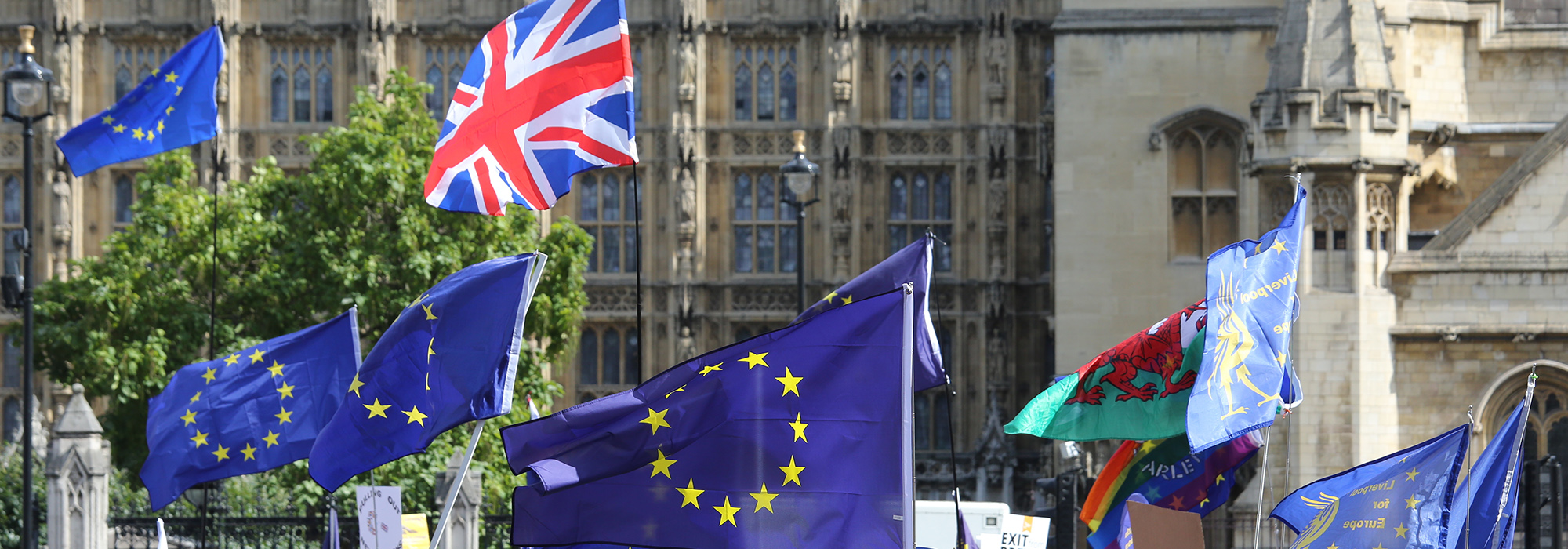
Contested though the long-term impact of Brexit on the UK economy may be, the overwhelming consensus among experts is that the near-term cost will be sizable. Household budgets are already shrinking, with the sharp devaluation of sterling that followed the referendum feeding through to a spike in inflation that has restarted the earnings squeeze that workers felt for so much of the previous decade. Looking further ahead, the Office for Budget Responsibility — the UK’s independent fiscal watchdog — has significantly increased its projection for government borrowing as a direct result of the vote. The organization expects this additional borrowing to reach roughly £15 billion a year by the end of the decade.
For some on the losing side of the referendum, Britain’s apparently perverse decision to vote in favour of making the country poorer is explained by the triumph of xenophobia over economic logic. But for others in both the Remain and the Leave camps, the result is taken as a manifestation of economic discontent among those “left behind” by capitalism.
To determine where the truth lies, the Resolution Foundation’s The Importance of Place report applies formal regression analysis. Our study compares and contrasts the referendum vote across Britain’s 380 areas of local government (“local authorities”) to determine which location-specific characteristics prove most influential when we control for everything else. Our results are reassuringly complex. The economic condition of an area does matter, but so too do demographic and cultural factors. Indeed, the biggest single predictor of the vote in an area — the proportion of the population holding a university degree (or equivalent) — neatly brings all these drivers together in one.
Unsurprisingly, immigration matters too. But not its level: rather, its pace of change. That is, we find no statistically significant difference in the proportion voting Leave between areas of low and high immigration. But we do find differences in those communities in which the proportion of non-UK-born residents increased most rapidly in the decade before the referendum. The implication is that areas experiencing the most visible change in population were more likely to vote Leave.
Culturally, self-reported levels of “cohesion” matter: the Leave vote was stronger in areas where higher proportions of people said that residents in their neighbourhood didn’t get on with people who are “different.” And specific regional effects are apparent too; for instance, communities across Scotland proved more likely to vote Remain than all of their other characteristics would suggest they should have. In that instance, the political leadership of the Scottish Nationalist Party and a preference for Brussels over Westminster are likely to have played a role. But regional effects were evident in other parts of the country too.
The divide exposed by the Brexit vote remains all too apparent some 18 months later. From Westminster’s gilded corridors to street-corner pubs and the unfettered forums of social media, the causes and consequences of the referendum vote continue to form a staple — and bitter — topic of conversation. Of course, the binary in/out approach of a referendum always has the potential to be divisive. But what makes the Brexit vote so important is that it appeared to trigger an apparent wave of political populism around the globe. And at least some of the UK drivers appear to have resurfaced in other contexts.
In repeating our regression exercise in relation to the US presidential vote, for instance (this time focusing on the swing from Romney in 2012 to Trump in 2016 at the county level), we saw striking similarities. Educational attainment again dominated, with a combination of economic, demographic and cultural factors at play. The key differences were twofold: race (a crucial determinant of the vote in the US, but not in the Brexit referendum) and low turnout in the US (speaking to the extent to which the result was as much about what Clinton didn’t do as what Trump did). Similarly complex issues appear to have been behind the surprisingly strong AfD vote in the recent German election.
While Canada is often held up as a beacon of moderation, it’s worth considering what lessons about the potential for divisive politics Canadians can learn from the UK experience. It’s particularly useful to do so when we reflect on the ways in which the evolution of the UK’s economic story over the past three decades has parallels with — and some vital divergences from — the Canadian one.
Despite a new-found political preoccupation with inequality in the UK, any number of income inequality measures show very little change in recent years: society became much more uneven over the course of the 1980s, but relatively little has altered since around 1990. It’s true that income inequality in the UK remains high by international standards, but perceptions of things getting ever worse appear wide of the mark.
So why is discontent at this historical economic divide manifesting itself only now? Look again at recent trends in income growth for working-age households (after accounting for housing costs) and some distinct and illuminating patterns show up. Growth in the 1980s was indeed hugely uneven, but most parts of society got richer — it’s just that the middle did much better than the bottom and the top did much better still. Growth in the 1990s was strong and evenly shared: inequality didn’t fall, but everyone got better off. Ahead of the financial crisis, growth started to slow, with only the top being insulated. Since 2007, however, growth has ground to a halt for everyone: inequality hasn’t risen any further, but progress in living standards has ended.
To put it another way, the opening up of inequality in the 1980s can be thought of as a crack in the roof of society that has gone unmended. It mattered less when the sun was shining as the economy grew. But the rain has been falling for the last decade and people are getting very wet.
This characterization is supported by the analyses of the Brexit and Trump votes. In both instances, to the extent that economic factors are important, we find that it is not recent divergent economic experiences that matter but long-established trends instead. In both cases, the seeds appear to have been sown more than 30 years ago.
For now, the sun is still shining in Canada. But the country’s roof could probably do with some fixing up. Certainly, Canada’s level of income inequality is remarkably similar to the UK’s (albeit slightly lower). And the pattern of a sharp past increase in this measure (this time in the 1990s) followed by little recent change is familiar. If bigger economic clouds start to gather over the coming years, then discontent at existing divisions within the country could surface just as swiftly as they have in the UK.
With this in mind, Canada should pay attention to both aspects of an inclusive growth agenda: it should seek rising incomes and declining inequality simultaneously, rather than prioritizing one over the other. That’s the goal in the UK too, but here the outlook has been very much complicated by the need to negotiate the exit from the EU and multiple new trade deals around the world. Better to fix the roof while the sun shines.
This article is part of the special feature Inclusive Growth in an Age of Disruption
Photo: Westminster, London. A crowd gathered for an anti-Brexit rally September 9, 2017, at the Houses of Parliament in the week when the EU withdrawal bill was introduced. Shutterstock, by lonndubh.
Do you have something to say about the article you just read? Be part of the Policy Options discussion, and send in your own submission. Here is a link on how to do it. | Souhaitez-vous réagir à cet article ? Joignez-vous aux débats d’Options politiques et soumettez-nous votre texte en suivant ces directives.








